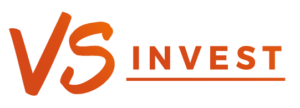Earlier this week I was mentioning some things to someone I thought could be interesting to implement in the whole ERP software sphere (if you want to know more about them, just hire me). There was this question: what’s ERP anyway? Then I realised it was again one of those fancy fashionable words that we are used to get sent our way, but where little know what they actually mean.
ERP stands for Enterprise Resource Planning. Not that useful actually. I felt like a doctor who just explained the meaning of a medical acronym, but where the patient looks back at him wondering if he is supposed to have understood anything more. So I figured after explaining it, that I could just as well write something about it and see if I could enlighten more people with it.
There are different ways to look at it, but I like to see it as a “simple” translation of a company into a software. Let’s work with an example: a tomato producer who sells tomatoes on the market. This type of sale is not just about selling a tomato, but has implications and ramifications that can get pretty complex, and that is what an ERP program is supposed to help with: to keep all these things together and to exploit the links between different aspects of the company.

Selling a tomato
So, you are a farmer that just sold a tomato. You give the tomato to the customer, he gives you money in return. Looking at the bigger picture of a company, this is more than just a sale. First you needed the land to be able to produce tomatoes. You purchased it, which creates a long term asset. To buy this land, you needed a loan, which would create liability to the bank.
Once you had this, you needed to buy seeds and equipment, you had your overhead costs, etc. Of course, you didn’t just produce one tomato, you grew a few more of them and to pick them all, you needed to hire people to help you. Afterwards you reached the market where you sold the tomatoes and saw your stock reducing, but this by filling your cash reserve. A disadvantage to this is that you have to pay taxes on your sales, file your income statements and profits, and so on. Are you starting to have a headache yet? Let’s just have a look at all that was behind selling this one tomato:

- Managing fixed assets (your land)
- Budget planning (your loan)
- Equipment and its maintenance
- Purchasing
- Inventory
- Overhead costs
- Human resources
- Marketing
- Tax
- Accounting
- Treasury
More than just tomatoes
Of course, realistically speaking you’re not going to sell only one tomato. Hopefully, and you’re also going to sell other products too. When you see all the topics tackled by this tomato, you can imagine it gets trickier when you do this with a mix of products and customers. You need to go into production planning, managing your customers, check your costs,… In short, you need to have a global look of all the aspects of the company cycles.
That is exactly the point of an ERP software. It is going to take, for example, this sale and not just put it into accounting but also link it with a marketing module where you can track your best customers, look at what your best selling products are, linking it with your cost accounting where you can see if selling tomatoes are profitable for you or not. It will also be linking it with your asset management, seeing how intense you are using your land, calculating several possible ratios and indicators. And so the list continues.
Why they are useful ?
Of course, realistically speaking you’re not going to sell only one tomato. Hopefully, and you’re also going to sell other products too. When you see all the topics tackled by this tomato, you can imagine it gets trickier when you do this with a mix of products and customers. You need to go into production planning, managing your customers, check your costs,… In short, you need to have a global look of all the aspects of the company cycles.
The point is that ERP software is there to help keeping the bigger picture in perspective on a company, seeing the link between different aspects and making things more effective. You used to have marketing people who would have their software, tracking sales etc, while accounting had their software where they booked them. Production would have their own too, and so on. And there you see quickly how there is a lot of redundancy and loss of efficiency. Instead of putting in the same data in different programs, repeating the same action, an ERP software will make sure that you only need to do it once. This way when someone adds an operation in one module, the data will automatically be used to complete the one of other modules.
Some people still consider these programs more as a combination or merger of several ones. I believe this is a very restrictive and out-dated view, not only on the software, but also on companies. A company is not just the sum of several department, it is a combination of them where they all need each other. Blame it on my more holistic and generalist approach on things, but the way I see it, ERP programs are just a complete set of modules meant to help companies not overlook certain aspects by having a general overview.
I hope I helped some more people understand ERP software a bit more.
